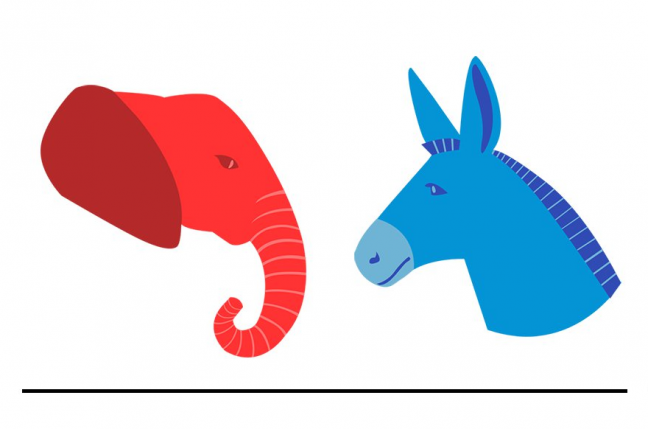If you’re a University of Wisconsin student, you probably have your school-issued voter ID card in your wallet (and if you don’t, you can pick one up at Union South). The card is a key to civic participation, but it also raises a question. Why do students who are interested in voting need two pieces of ID when every student already has a Wiscard?
Legally speaking, for a Wiscard to be a legal voter ID, it would need to have a two-year expiration date, requiring the university to choose between printing new Wiscards biennially or printing two ID cards per person if they want to empower students to vote more easily, either way burdening the university with unnecessary costs.
This may seem like a small inconvenience, but it should have you asking questions. Importantly, who benefits from young people voting less?
The Brookings Institute reported in 2016 that 10% more millenials identify as Democrats than Republicans. And as clear as it is that the Republicans are the party of the past, student disenfranchisement is just the tip of the iceberg.
In the aftermath of 2016 and the first presidential election held after Scott Walker’s Republican government passed Wisconsin’s voter ID laws, CBS News reported that 300,000 eligible voters went into the election without a valid ID. While Donald Trump’s margin of victory was 22,000 votes, turnout in the wake of the voter ID law’s passage shrank by 41,000 in the Democratic stronghold of Milwaukee alone.
For all the hollow rhetoric about protecting the voting process from the GOP, their actions make it clear that it isn’t their priority — only three years after the 2016 election, and in response to a whistleblowing PR crisis, Mitch McConnell voted to approve funding intended for electoral security, and the amendment as approved doesn’t even earmark the funds for that specifically, leaving the door open to buy easily-hacked digital ballot machines.
Even now, when Republicans talk about electoral security, they raise concerns about the issuance of driver’s licenses to undocumented immigrants. Even though the driver’s licenses issued to these immigrants won’t be usable for voting, the GOP continues to disingenuously raise fear about the possibility of the immigrants who live here being able to drive to work.
The motive for voter ID laws is not and never has been preventing in-person voter fraud, which only occurred 31 times between 2000 and 2014 — geographically scattered and statistically insignificant compared to the near billion ballots cast.
Rather, voter ID laws are motivated by the same cynical animus that has Republicans trying to strip our lawfully elected governor of his power in lame-duck legislative sessions or break the power of minority with unfair districting — a willingness to game the system to make sure that the votes of the Democratic party’s base count less and less.
Point Counterpoint: Why you should join UW College Democrats
The 24th Amendment banned making Americans pay to exercise their right to elect their representatives, but with voter ID laws, we see a new kind of poll tax. While ID can be obtained without any up-front payment, the costs for transportation and lost time on the job, which most impact minorities and the poor, range from $75 to $175 dollars. Similarly, it is members of these groups who are most likely to lack the ID necessary to vote in the first place.
These disparities aren’t just theoretical — a 2014 study found the depressive effect of photo ID laws increased the participation gap between voters of color and white voters. The Republican party has the bugbears it likes to harp about – people voting for the dead, baseless allegations of undocumented immigrants voting, and people casting multiple ballots. In practice, the only people it secures the ballot box from are America’s minorities.
Ethan Carpenter (emcarpenter2@wisc.edu) is a junior majoring in political science. He is the press secretary for the College Democrats of UW-Madison.
Editor’s note: Ethan is a columnist for The Badger Herald. Here, his views strictly represent those of the College Democrats and do not represent the Herald.
Read about the College Republicans’ position on voter ID here.


